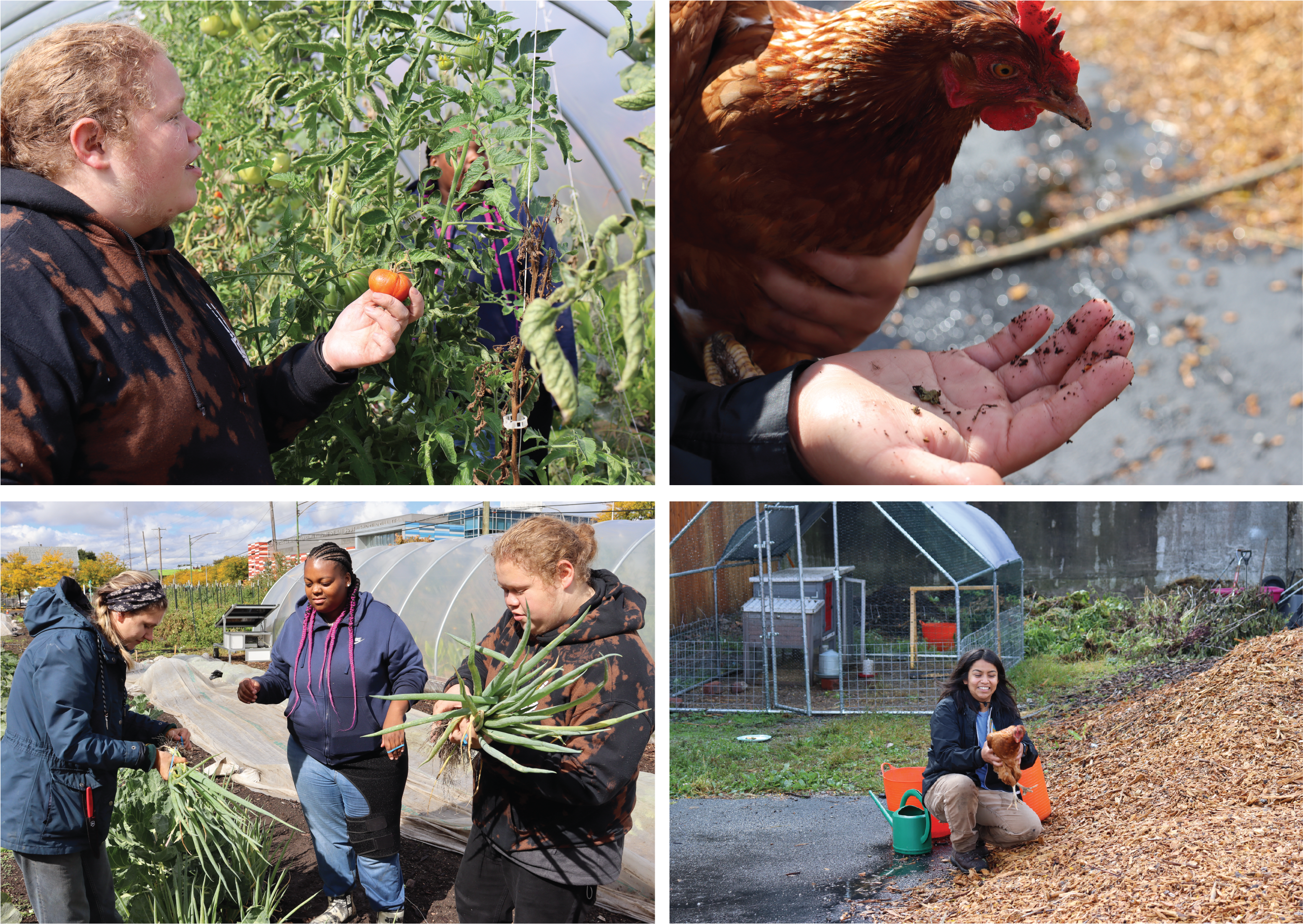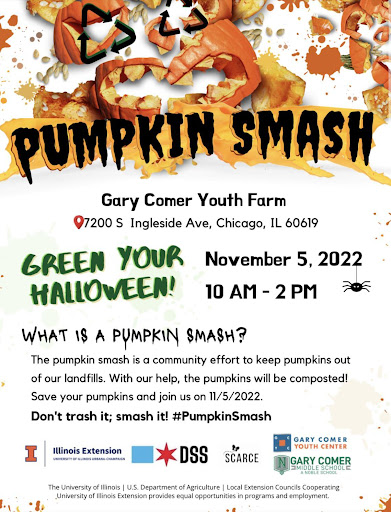The Gary Comer Youth Center runs STEAM-based youth farming program that promotes sustainable local food systems.
Located in Greater Grand Crossing, the Gary Comer Youth Center is working all year long to provide seed-to-table learning.
Ty Bailey, garden assistant for the Comer Crops crew, speaks to how urban agriculture is strengthening students’ life skills.
“There is a massive connection with knowing how to follow processes throughout the year and how to keep soil healthy and also knowing the process of how to keep yourself and your living environment healthy,” said Bailey.

Joshua Guerra carries scallions for the farmers market at the Youth Education Garden. Photo by Michelle Edwards, 14 East
Youth are able to work in a thriving green space and rooftop garden where they can learn beyond the classroom.
Skills demonstrated include leadership, cultivating relationships, conservation practices and entrepreneurial proficiency.
“The mission of the youth center is to prepare young people for college, careers, and opportunities, as well as create well-rounded, global citizens. The urban agriculture department prepares young people specifically with the knowledge of food sovereignty and the importance of food access,” Production Manager Sandra Reno added.
The program houses three groups with participants spanning from middle school-aged youth to young adults: The Green Explorers, the Green Teens and the Comer Crops. At the Comer Crops level 18- to 24-year-olds are able to earn more than minimum wage in an internship program promoting environmental literacy.
Joshua Guerra worked as a part of the Green Teens crew throughout high school and is now a full-time Comer Crops crew member.
“I have been in it since freshman year and it has helped me learn more about how food grows, where it comes from and the process of how it gets from a farm to a grocery store,” said Guerra. “It’s been a really nice experience because I have got to do a lot of things that I don’t think I’d be able to do without being in Green Teens.”

Left: Kailey Nelson, Saliyah Thomas and Joshua Guerra harvest scallions at the Youth Education Garden.
Right: Sandra Reno searches for fleas on chicken at the Youth Education Garden.
Photos by Michelle Edwards, 14 East
Urban agriculture is described as the practice of cultivating, processing and distributing food in or around urban areas. By keeping fresh food close to us, we are able to reduce transportation costs and provide fresh produce at affordable prices.
The center hosts a farmer’s market every Tuesday and Friday throughout the summer and early fall that operates on a sliding scale where customers pay what they can for crops including greens, potatoes, tomatoes, onions and more.
“It is important to increase food access. We’re one of the few sources for fresh produce for a lot of people,” said Reno. “It’s also beneficial for our mental health, our physical health, just to be working with soil and having that food sovereignty that you know where your food comes from.”
Recent alum Kailey Nelson, a Comer Crops crew member, began her journey with urban agriculture right here at DePaul.
“The first experience I had with urban agriculture was at the very end of my freshman year, actually. I took my experiential learning at DePaul. I did urban and community agriculture … I got connected to the youth center through an environmental community internship through DePaul,” said Nelson.

Saliyah Thomas and Kailey Nelson talk about the struggles of produce in the winter season at the Youth Education Garden. Photo by Michelle Edwards, 14 East
Nelson has extended her summer internship and continues to work with the youth center. She cares about urban agriculture and believes Chicago residents should care, too.
“Chicago obviously deals with a lot of inequity, as far as food access and uneven distribution,” said Nelson. “I think that urban agriculture provides an interesting opportunity to take vacant land and turn an underutilized resource into a way to provide for the community.”
But how can people get involved?
“The best way to get involved in urban agriculture is to Google your local community garden,” added Bailey.
In addition, the youth center has a special event coming up called Pumpkin Smash. At this event attendees are encouraged to bring their leftover Halloween pumpkins to incorporate into fun games such as pumpkin catapult, basketball and a smash tank.
The farm is aiming to collect these pumpkins in order to keep them out of landfills. Their remnants are used by the garden and sent to various composting centers to be incorporated back into soil.

Flier courtesy of Sandra Reno, Gary Comer Youth Center
This offers the perfect opportunity to have a fun fall night out as well as contributing to the center’s goal of providing sustainable green space for the Chicago community!
You can keep up with the urban agriculture program’s work and upcoming events on their Instagram. (insert link to @comercrops on instagram)
Header illustration by Samarah Nasir




NO COMMENT